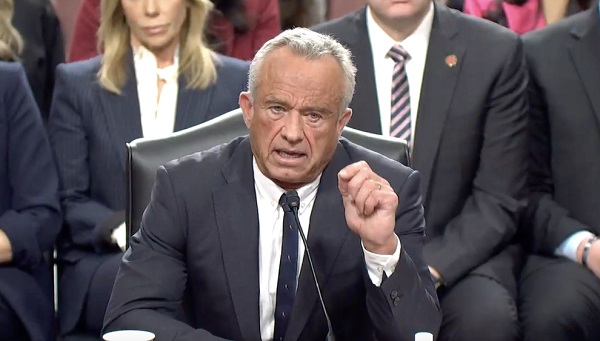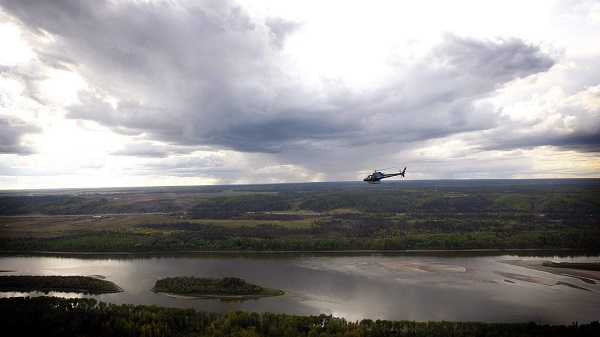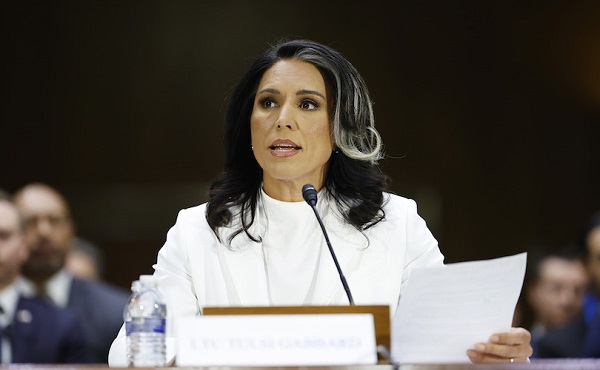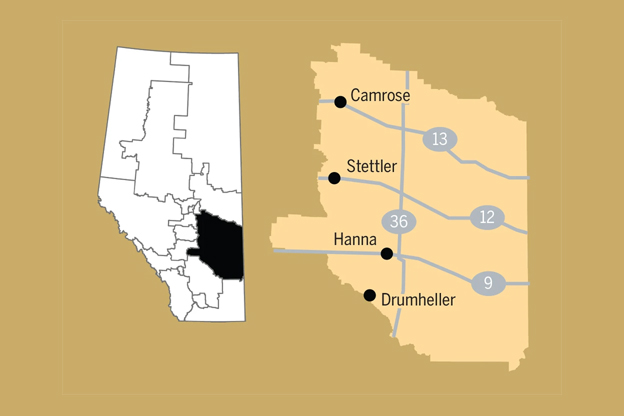Uncategorized
Taylor Swift wins big at AMAs and encourages fans to vote

Taylor Swift kicked off her week with a rare political post on social media, and at the American Music Awards she continued the conversation by encouraging fans to vote in the upcoming midterm elections.
Swift won four
“This award and every single award given out tonight were voted on by the people, and you know what else is voted on by the people,” she said, “the midterm elections on November 6.”
Swift announced on Sunday that she was voting for Tennessee’s Democratic Senate candidate Phil Bredesen, breaking her long-standing refusal to discuss anything politics.
Voting was a hot topic at the AMAs. Host and Golden Globe-winning “black-ish” actress Tracee Ellis Ross wore a shirt that said, “I am a voter,” and comedian-actor Billy Eichner told the audience, “The biggest election of our lifetime is happening.”
“Please grab your friends and tell them to vote. Now is the time. If you believe in equality for women, for people of
“And you can go to Vote.org like Taylor Swift told you to,” he added.
Swift made history by becoming the most decorated woman in the show’s history with a total of 23 AMAs. Despite having the year’s top-selling album and three No. 1 hits, Drake didn’t win a single award. He did not attend the show but tied Cardi B with most nominations walking into the AMAs.
Swift kicked off the show with a performance of “I Did Something Bad,” while Cardi B — who won three
“I really want to thank my daughter,” said Cardi B, who gave birth to Kulture Kiari Cephus in July. “I gotta prove people wrong. They said I wasn’t going to make it after I had a baby.”
The rapper hit the stage to give a festive and colorful performance of her No. 1 hit, “I Like It,” where she was joined by J Balvin and Bad Bunny, who was wheeled onstage inside a shopping cart. Cardi B’s husband, Offset of the rap trio Migos, danced along in the audience with group member Quavo as Cardi B worked the stage with vibrant dance moves, including the salsa.
Cardi B returned the
“We did not know we was winning this at all,” said Quavo, also giving a shout-out to group member Takeoff, who didn’t attend the AMAs.
“I want to thank you sexy lady,” Offset said, pointing to Cardi B.
Like Cardi B’s performance, rising newcomer Ella Mai also won over the crowd when she sang the year’s biggest R&B hit, “Boo’d Up,” starting the performance as she walked down the aisle of the Microsoft Theater. Khalid, Quavo and Offset were some of the audience members dancing along, while others sang and some even filmed her with their phones.
Others who shined onstage included R&B singer Ciara, who showed off her skilled dance moves and was joined by a fierce Missy Elliott. Carrie Underwood was in perfect form vocally, and Camila Cabello — who tied Swift with four wins — gave a heartful, touching and vocally impressive performance of the ballad “Consequences,” earning her a standing ovation.
The three-hour show closed with a rousing tribute to Aretha Franklin, who died in August. Gladys Knight, Ledisi, Mary Mary, Donnie McClurkin and CeCe Winans were among the musicians who paid tribute to the Queen of Soul’s gospel roots and her iconic album, “Amazing Grace.”
Rapper-singer XXXTentacion, who was fatally shot in June, was also
His mother, Cleopatra Bernard, said she was
Kane Brown swept the country categories with three wins, including male artist, album and song.
Post Malone, who wore a baby blue suit and performed, won
Other performers included Mariah Carey, Jennifer Lopez, Shawn Mendes and twenty one pilots.
Mesfin Fekadu, The Associated Press
Uncategorized
Poilievre on 2025 Election Interference – Carney sill hasn’t fired Liberal MP in Chinese election interference scandal

From Conservative Party Communications
“Yes. He must be disqualified. I find it incredible that Mark Carney would allow someone to run for his party that called for a Canadian citizen to be handed over to a foreign government on a bounty, a foreign government that would almost certainly execute that Canadian citizen.
“Think about that for a second. We have a Liberal MP saying that a Canadian citizen should be handed over to a foreign dictatorship to get a bounty so that that citizen could be murdered. And Mark Carney says he should stay on as a candidate. What does that say about whether Mark Carney would protect Canadians?
“Mark Carney is deeply conflicted. Just in November, he went to Beijing and secured a quarter-billion-dollar loan for his company from a state-owned Chinese bank. He’s deeply compromised, and he will never stand up for Canada against any foreign regime. It is another reason why Mr. Carney must show us all his assets, all the money he owes, all the money that his companies owe to foreign hostile regimes. And this story might not be entirely the story of the bounty, and a Liberal MP calling for a Canadian to be handed over for execution to a foreign government might not be something that the everyday Canadian can relate to because it’s so outrageous. But I ask you this, if Mark Carney would allow his Liberal MP to make a comment like this, when would he ever protect Canada or Canadians against foreign hostility?
“He has never put Canada first, and that’s why we cannot have a fourth Liberal term. After the Lost Liberal Decade, our country is a playground for foreign interference. Our economy is weaker than ever before. Our people more divided. We need a change to put Canada first with a new government that will stand up for the security and economy of our citizens and take back control of our destiny. Let’s bring it home.”
Uncategorized
Canada Needs A Real Plan To Compete Globally

From the Frontier Centre for Public Policy
Ottawa’s ideological policies have left Canada vulnerable. Strategic action is needed now
As Canada navigates an increasingly complex geopolitical landscape, the next federal government must move beyond reflexive anti—Americanism regardless of its political leanings. Instead, Canada should prioritize national interests while avoiding unnecessary conflict and subservience.
The notion that Canada can stand alone is as misguided as the idea that it is only an economic appendage of the United States. Both perspectives have influenced policy in Ottawa at different times, leading to mistakes.
Rather than engaging in futile name-calling or trade disputes, Canada must take strategic steps to reinforce its autonomy. This approach requires a pragmatic view rooted in Realpolitik—recognizing global realities, mitigating risks, governing for the whole country, and seizing opportunities while abandoning failed ideologies.
However, if Washington continues to pursue protectionist measures, Canada must find effective ways to counteract the weakened position Ottawa has placed the country in over the past decade.
One key strategy is diversifying trade relationships, notably by expanding economic ties with emerging markets such as India and Southeast Asia. This will require repairing Canada’s strained relationship with India and regaining political respect in China.
Unlike past Liberal trade missions, which often prioritized ideological talking points over substance, Canada must negotiate deals that protect domestic industries rather than turning summits into platforms for moral posturing.
A more effective approach would be strengthening partnerships with countries that value Canadian resources instead of vilifying them under misguided environmental policies. Expand LNG exports to Europe and Asia and leverage Canada’s critical minerals sector to establish reciprocal supply chains with non-Western economies, reducing economic reliance on the U.S.
Decades of complacency have left Canada vulnerable to American influence over its resource sector. Foreign-funded environmental groups have weakened domestic energy production, handing U.S. industries a strategic advantage. Ottawa must counter this by ensuring Canadian energy is developed at home rather than allowing suppressed domestic production to benefit foreign competitors.
Likewise, a robust industrial policy—prioritizing mining, manufacturing, and agricultural resilience—could reduce dependence on U.S. and Chinese imports. This does not mean adopting European-style subsidies but rather eliminating excessive regulations that make Canadian businesses uncompetitive, including costly domestic carbon tariffs.
Another key vulnerability is Canada’s growing military dependence on the U.S. through NORAD and NATO. While alliances are essential, decades of underfunding and neglect have turned the Canadian Armed Forces into little more than a symbolic force. Canada must learn self-reliance and commit to serious investment in defence.
Increasing defence spending—not to meet NATO targets but to build deterrence—is essential. Ottawa must reform its outdated procurement processes and develop a domestic defence manufacturing base, reducing reliance on foreign arms deals.
Canada’s vast Arctic is also at risk. Without continued investment in northern sovereignty, Ottawa may find itself locked out of its own backyard by more assertive global powers.
For too long, Canada has relied on an economic model that prioritizes federal redistribution over wealth creation and productivity. A competitive tax regime—one that attracts investment instead of punishing success—is essential.
A capital gains tax hike might satisfy activists in Toronto, but it does little to attract investments and encourage economic growth. Likewise, Ottawa must abandon ideological green policies that threaten agri-food production, whether by overregulating farmers or ranchers. At the same time, it must address inefficiencies in supply management once and for all. Canada must be able to feed a growing world without unnecessary bureaucratic obstacles.
Ottawa must also create an environment where businesses can innovate and grow without excessive regulatory burdens. This includes eliminating interprovincial trade barriers that stifle commerce.
Similarly, Canada’s tech sector, long hindered by predatory regulations, should be freed from excessive government interference. Instead of suffocating innovation with compliance mandates, Ottawa should focus on deregulation while implementing stronger security measures for foreign tech firms operating in Canada.
Perhaps Ottawa’s greatest mistake is its knee-jerk reactions to American policies, made without a coherent long-term strategy. Performative trade disputes with Washington and symbolic grandstanding in multilateral organizations do little to advance Canada’s interests.
Instead of reacting emotionally, Canada must take proactive steps to secure its economic, resource, and defence future. That is the role of a responsible government.
History’s best strategists understood that one should never fight an opponent’s war but instead dictate the terms of engagement. Canada’s future does not depend on reacting to Washington’s policies—these are calculated strategies, not whims. Instead, Canada’s success will be determined by its ability to act in the interests of citizens in all regions of the country, and seeing the world as it is rather than how ideological narratives wish it to be.
Marco Navarro-Génie is the vice president of research at the Frontier Centre for Public Policy. With Barry Cooper, he is co-author of Canada’s COVID: The Story of a Pandemic Moral Panic (2023).
-

 COVID-192 days ago
COVID-192 days agoStudy finds nearly half of ‘COVID deaths’ had no link to virus
-

 2025 Federal Election2 days ago
2025 Federal Election2 days agoCarney says Liberals won’t make voting pact with NDP
-

 Autism1 day ago
Autism1 day agoNIH, CMS partner on autism research
-

 Alberta2 days ago
Alberta2 days agoEnergy projects occupy less than three per cent of Alberta’s oil sands region, report says
-

 Energy2 days ago
Energy2 days agoOil tankers in Vancouver are loading plenty, but they can load even more
-

 International2 days ago
International2 days agoIce Surprises – Arctic and Antarctic Ice Sheets Are Stabilizing and Growing
-

 Alberta2 days ago
Alberta2 days agoCharges laid in record cocaine seizure
-

 Business1 day ago
Business1 day agoInnovative Solutions Like This Plan To Provide Power For Data Centres Will Drive Natural Gas Demand For Decades






